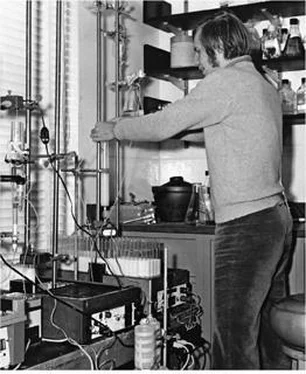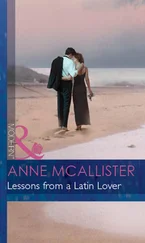James Watson - AVOID BORING PEOPLE - Lessons from a Life in Science
Здесь есть возможность читать онлайн «James Watson - AVOID BORING PEOPLE - Lessons from a Life in Science» весь текст электронной книги совершенно бесплатно (целиком полную версию без сокращений). В некоторых случаях можно слушать аудио, скачать через торрент в формате fb2 и присутствует краткое содержание. Жанр: Биографии и Мемуары. Описание произведения, (предисловие) а так же отзывы посетителей доступны на портале библиотеки ЛибКат.
- Название:AVOID BORING PEOPLE: Lessons from a Life in Science
- Автор:
- Жанр:
- Год:неизвестен
- ISBN:нет данных
- Рейтинг книги:5 / 5. Голосов: 1
-
Избранное:Добавить в избранное
- Отзывы:
-
Ваша оценка:
- 100
- 1
- 2
- 3
- 4
- 5
AVOID BORING PEOPLE: Lessons from a Life in Science: краткое содержание, описание и аннотация
Предлагаем к чтению аннотацию, описание, краткое содержание или предисловие (зависит от того, что написал сам автор книги «AVOID BORING PEOPLE: Lessons from a Life in Science»). Если вы не нашли необходимую информацию о книге — напишите в комментариях, мы постараемся отыскать её.
AVOID BORING PEOPLE: Lessons from a Life in Science — читать онлайн бесплатно полную книгу (весь текст) целиком
Ниже представлен текст книги, разбитый по страницам. Система сохранения места последней прочитанной страницы, позволяет с удобством читать онлайн бесплатно книгу «AVOID BORING PEOPLE: Lessons from a Life in Science», без необходимости каждый раз заново искать на чём Вы остановились. Поставьте закладку, и сможете в любой момент перейти на страницу, на которой закончили чтение.
Интервал:
Закладка:
My decision to take on Cold Spring Harbor's troubles was in no small part sentimental. When I was there I was home. To me it was science at its best, where finding deep truths mattered more than personal advancement. Never had I known anyone to pull rank there or to get above himself. I could not contemplate the thought of its demise. As director, moreover, I could test my 1958 hypothesis that the cancerous potential of DNA tumor viruses is owing to the presence in their genomes of genes encoding enzymes that turn on DNA synthesis. It was too good an idea not to have a high chance of being correct, but because of space and funding limitations it had no chance of being tested at Harvard.
The sad underutilization of lab space at Cold Spring Harbor could prove a blessing. Its scientific direction could be changed fast without the unpleasantness of alienating excellent scientists already there who were oriented in the old way. To move swiftly into molecular biology, MIT in the mid-1950s had effectively fired its entire Biology Department, a move that generated much bitterness. This would not be necessary at Cold Spring Harbor.
On Sunday, February 4,1 made my first public appearance as director. The occasion was the annual meeting of the Long Island Biological Association, whose membership initially was drawn from the owners of the great estates that had once dominated much of the landscape of the North Shore. Though the twenty years since the war had seen many big estates subdivided, there still remained, within a several-mile radius around the lab, the opulent homes of many of Harvard's most loyal and generous Wall Street benefactors. Thus, I thought, my Harvard professorship could prove as relevant as my Nobel Prize in mobilizing the local gentry behind our new cancer research objectives. Equally important was the high esteem in which John Cairns and his family were held by the Cold Spring Harbor community. That afternoon I publicly announced my hope that John would remain as a lab scientist and continue to live in Airslie, the large wooden manor house built for Major William Jones in 1806. Long part of the Henry deForest estate just to the north of the lab, it became the director's home in 1942. Being single and planning to be on site at most six to eight days a month, I did not need its many rooms. Before the association meeting started, I requested the even older Osterhout Cottage as my own residence. Alfred and Jill Hershey had lived there for several years before building a largely glass-walled house on land west of the lab.At that time, my father was avoiding the winter cold in an old-fashioned resort on the west coast of Florida below Sarasota. This was his fifth winter there, the first having followed the mild stroke in November 1963. Once the awful shock of my mother's sudden death in 1957 had passed, Dad's broad, warm smile helped him make new friends among kindred souls, who valued books and Rooseveltian ideals. In particular, he met several quiet intellectuals associated with the experimental New College, on the grounds of the once expansive Ringling estate outside Sarasota. Two years before, he'd been proud to attend a lecture I gave to its students. The college's focus on the great books of Western civilization reminded me fondly of my University of Chicago years. His last Florida visit, however, had gone less well, as Dad's long-dormant stomach ulcer again opened up. Fortunately, it soon healed, and he felt confident enough to spend several spring
weeks on a cruise to the Mediterranean before passing much of the summer on Martha's Vineyard in Edgartown's quaint Harbor View Hotel.Still, he was only in middling health when he left my sister's Washington home after Christmas to again take up residence in Florida the year I became director. The persistent bad cough he'd developed over the holidays wouldn't abate in the Southland's warmth. But his Sara-sota physician reassured my sister, Betty, several times over the phone that Dad did not have a virulent pneumonia. He was otherwise in good spirits, particularly when two Atlantic Monthly issues serializing The Double Helix appeared without generating a firestorm of criticism. He was also proud that his New College friends got a kick out of seeing me on the Merv Griffin Show.
Then, without warning, my sister called late one afternoon to report that Dad's persistent cough was never to go away. It was caused by an inoperable lung cancer, and the prognosis was that Dad had but a few months left. The two packs of Camels that he had smoked every day since college had finally caught up with him. Betty had gotten the grim news while I was en route to Cambridge from New York City after the lunch marking the publication date of The Double Helix. I was at my office when she finally reached me that afternoon. Then with me was the very pretty Elizabeth Lewis, the Radcliffe junior who on many afternoons assisted my secretary, Libby Aldrich's sister-in-law, Susie. Liz's appearance in the Biolabs several times a week to file reprints or to help me assemble successive drafts of The Double Helix invariably made me feel good. Conversely, I always felt lonely when she retreated back into her student life.
When she first came to Harvard, Liz thought about majoring in math, a subject that she had much enjoyed as a student at the Lincoln School in Providence, where her father, Robert Vickery Lewis, of Welsh and Yankee antecedents, practiced medicine. After his college years at Brown, he studied medicine at the University of Pennsylvania, where he met his future wife, the nurse Edith Mae Belle Irey, of Scots-Irish and Pennsylvania Dutch heritage. Being at a small Quaker school in no way prepared Liz for the Harvard math concentration, and she switched to physical science as a possible route to medical school.

At my cousin Alices wedding to James Houston in 1967; I am to the right of the bride, and next to me are Betty's husband, Bob Myers; my sister, Betty; my father; and William Weldon Watson.
Our first effective date was unplanned, she coming with me at the last moment for an early pre-supper get-together at Carl and Anne Cori's home off Brattle Street. Afterward we drove along the Charles River to Boston, where we saw an English movie at the Exeter Theatre. Her exams were finished, and she was about to depart for a summer job in Montana at a resort ranch above Yellowstone Park. It had seemed a long summer when in early August a brief note from her made me realize just how keenly I had been anticipating her return to my office in the fall. Just after she got back to Radcliffe, we ran into each other on Brattle Street near Sage's Market, which coincidence gave me my second chance to drive with her into Boston. After lunch on Newbury Street, we went into Bonwit Teller, the elegant shop spread over the several spacious floors of what had been a gracious city mansion.
Over the fall months, she had increasingly continued to forgo evening meals at Moors Hall to join my father and me for supper at the Hotel Continental. Upon his return from Martha's Vineyard in August, Dad had chosen to move into the hotel, leaving his apartment
at 101/2 Appian Way. It would save him the trouble of shopping, preparing meals, and tidying up. At the time I did not let on to Dad how my affection for Liz had increased over the past eighteen months. I knew he would worry that at nineteen she was likely to reserve her true affection for someone much closer to her own age.As soon as I put down Betty's call, I asked Liz to stay with me for supper at the Continental. I did not want to be alone. It would be our first dinner together by ourselves. Afterward she did not go back to her dorm, telling me she did not want me to be alone that evening any more than I did. The next afternoon she left my office early to go grocery shopping on Brattle Street, planning to cook dinner that evening on the antique stove in my Appian Way flat. She had brought school-books to read after dinner in the unheated alcove off the main room. The next night, when again we went together to Carl and Anne Cori's home for dinner, Anne knew she no longer had to find single girls to sit next to me.
Читать дальшеИнтервал:
Закладка:
Похожие книги на «AVOID BORING PEOPLE: Lessons from a Life in Science»
Представляем Вашему вниманию похожие книги на «AVOID BORING PEOPLE: Lessons from a Life in Science» списком для выбора. Мы отобрали схожую по названию и смыслу литературу в надежде предоставить читателям больше вариантов отыскать новые, интересные, ещё непрочитанные произведения.
Обсуждение, отзывы о книге «AVOID BORING PEOPLE: Lessons from a Life in Science» и просто собственные мнения читателей. Оставьте ваши комментарии, напишите, что Вы думаете о произведении, его смысле или главных героях. Укажите что конкретно понравилось, а что нет, и почему Вы так считаете.












